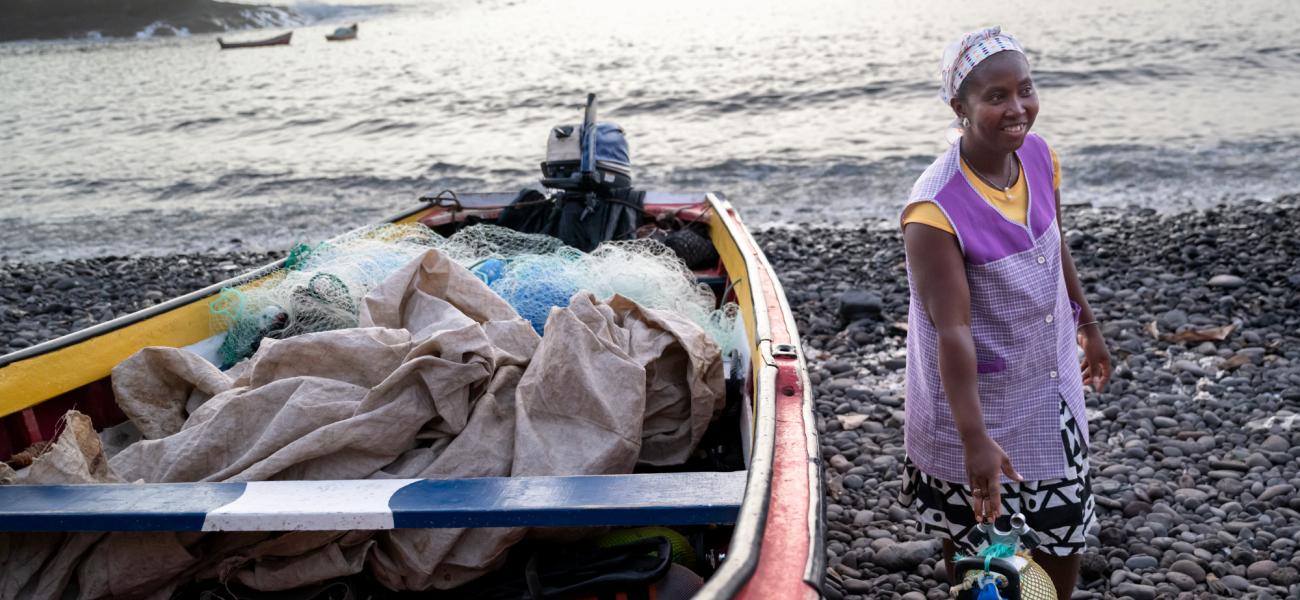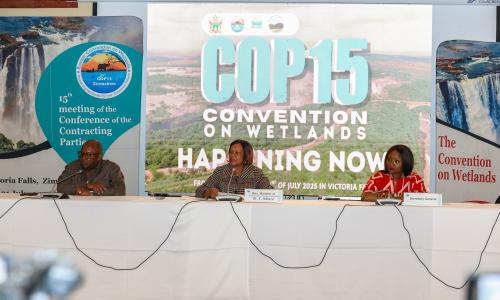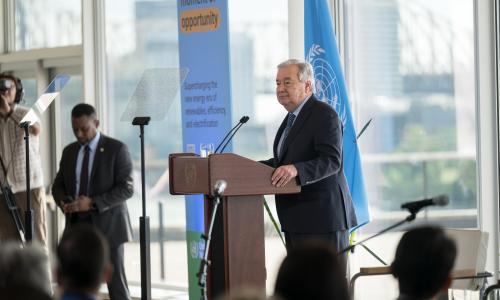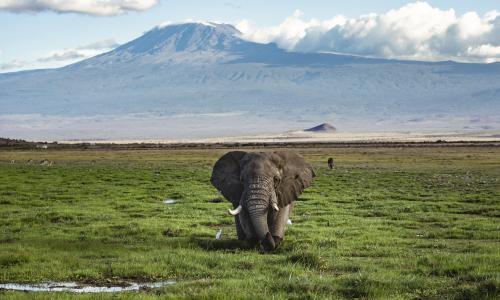In the quiet fishing village of Rincão, on the western coast of Santiago Island in Cabo Verde, Maria Sábado Horta Fidalgo, known to everyone as Mãezinha, is more than just a fishmonger. She is a boat owner, community leader, advocate for sustainable fishing, and a woman determined to chart her own course through hardship and hope.
At 44, Mãezinha lives in a multigenerational household with her 86-year-old mother, her 8-year-old daughter, and her niece. Her eldest daughter, now 21, has emigrated. Together, they form the anchor of a life built around the sea, a business she inherited not just by circumstance, but by calling.
“My name is Maria Sábado Horta Fidalgo, better known as Mãezinha” she quietly introduced herself,” as she sat on the rooftop of her small house facing the Atlantic Ocean. There, fishmongers, mostly young men and a few middle-aged women were busy divvying up catches brought ashore by fishermen. “I have two daughters… I’m a fishmonger, I have two boats,” she added.
Raised by the sea, inspired by a legacy
Fishing isn’t just a job for Mãezinha; it’s a legacy. Her father, one of Rincão’s most prominent shipowners, introduced her to the ocean when she was young. She remembers trailing behind him, watching the fishermen work, and witnessing the economic stability that fishing brought to their home.
“I realized how much income fishing brought in for him… and when he shared the profits, I saw how much came into our house.”
When her father passed away in 2011, she felt an almost instinctive pull toward the sea.
“I felt like investing in the sea. I realized that the sea is a great source of income with many benefits for the family.”
Mãezinha never stopped learning. Like many rural children at the time, continuing education meant leaving Rincão to stay with relatives in larger towns. She became ill with malaria and was hospitalized, forcing her to end her formal education early.
But her hunger for knowledge would resurface again and again—through training in cooking, pastry, fish processing, offered by development agencies and NGOs.
“Often, we in fishing communities don't know how to store fish when we have large quantities. With the training, we learned to make fish burgers, fillets, soufflés… It was very important, and we try to apply what we've learned in practical life.”
She also participated in theoretical training in Rincão, later practiced in Praia, which introduced her to concepts like food safety and fish hygiene.
Breaking barriers, in more ways than one
Although fishing remains male-dominated, Mãezinha rejects the notion that her gender has limited her in any way.
“I don't face any challenges because I'm a woman.”
Still, her biggest hurdle remains financial. Her boats, for example, are often grounded due to the lack of motors or bait. She must make do, sometimes watching from the shore as others take to sea with better resources.
“My biggest challenge is financial. My greatest anxiety is seeing my dream come true.”
In 2019, Mãezinha leveraged support from the Raiz Azul project to build her first boat.
The “Raiz Azul Project”, meaning “Blue Root” in Cape Verdean Creole, is a community-driven initiative launched in 2019, to strengthen the socio-ecological resilience of coastal communities on Santiago Island, Cabo Verde. Funded by the Darwin Initiative (UK) and implemented by the University of Cabo Verde (UniCV) in partnership with the Cabo Verdean Ecotourism Association (ECOCV) and others; the project focuses on sustainable development through ecotourism, environmental conservation, and community empowerment.
Her second was financed through income from filling oxygen bottles and proceeds from the first boat. She reinvested steadily expanding her home bit by bit as she earned more.
“I built my house little by little, as I received guests and had some income.”
A leader by example
As president of her local fishing association, Mãezinha has used her voice to advocate for better support from authorities. She helped secure fiberglass upgrades for local boats through a partnership with the Ministry of the Sea—recognition, she says, for being the only operational association in the region.
“I go to many places, and I'm welcomed with affection and friendship.”
Still, she sees how much remains to be done. Boats sit idle without bait or engines. Fishermen struggle to stay afloat. Many leave for Europe or the United States in search of opportunities.
“Anyone who wants to stay in their homeland… and is supported with an engine, will benefit on a daily basis.”
She dreams of owning a delivery vehicle to meet growing customer demand for fresh fish in Praia and other towns.
“I can drive, and if I have a car, I can make home deliveries.”
Investing in Cabo Verde, dreaming with her feet in the sand
Despite the many barriers she faces, Mãezinha is unwavering in her commitment to invest in her homeland. She wants to complete her house, acquire a fish delivery vehicle, and resume her once-thriving oxygen bottle compressor business.
“My dream is to invest everything in my country. I won’t give up… The important thing is to fight and never give up because stopping is worse.”
She takes pride in being innovative by choosing to invest in services the community lacks rather than compete in oversaturated markets.
“I prefer to invest in what doesn’t exist… That’s how I’ve had income.”
Her vision goes beyond personal success. Mãezinha is a vocal advocate for protecting Cabo Verde’s fragile coastal and marine environment. She warns against overfishing, particularly of juveniles and during spawning season, and criticizes the lack of enforcement.
“We shouldn’t catch today and forget about tomorrow… It could harm our children, grandchildren, or close family.”
She regularly tries to raise awareness among women involved in sand harvesting, an activity that increases the risk of coastal erosion in already vulnerable areas.
“If we collect sand, the land subsides, and the sea can invade our homes. That’s why we’ve asked several times for protective walls to be built.”
She also calls for basic sanitation infrastructure—at least one public toilet near the beach, to ensure fish are handled in a hygienic environment.
“The sea is the first moment of hygiene for our fish. It should always be clean.”
Above all, Mãezinha wants to see others rise alongside her, especially women like herself, heads of households who are looking for ways to feed their families with dignity.
“I usually pass on my experience and knowledge to other people in the community because I want there to be other active women like me.”
In a village where many boats are idle and options seem few, Mãezinha is proof that one woman’s determination can become a lifeline for many.
“I have faith that I will achieve something, a happy businesswoman who will employ people… not just at sea, but also in catering, tourism, and fish processing.”





